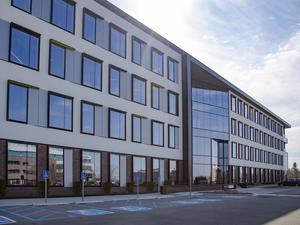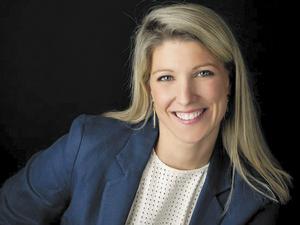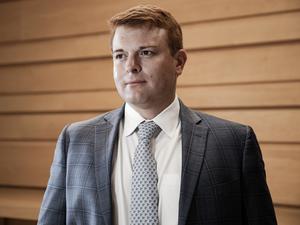
A scientist from the Donald Danforth Plant Science Center has teamed up with a prominent research facility in California to launch a project designed to determine how one of the most-widely grown cereal crops can be used to mitigate climate change.
Nadia Shakoor, principal investigator and senior research scientist at the Danforth Center in Creve Coeur, is partnering with the La Jolla, California-based Salk Institute for Biological Studies on the five-year, $6.2 million project. It involves the researchers studying how sorghum plants can reverse the adverse impacts of climate change by capturing atmospheric carbon and storing it in the ground. Through their work, researchers said there will “multiple iterations of plant breeding and genetic analysis” of the crop.
The project is part of the Salk Institute’s Harness Plants Initiative (HPI), which includes researching how crops can help solve climate change through long-term carbon capture and sequestration. HPI has been backed in part through a $30 million donation from the Bezos Earth Fund, a climate change-focused philanthropic initiative launched by Amazon.com Inc. founder Jeff Bezos.
Scientists behind the sorghum-focused initiative said the plant’s reputation as environmentally-friendly and drought-resistant positions it as “an ideal crop to optimize for carbon capture.” In the U.S., sorghum has been planted on about 7 million acres this year. The cereal crop is used as a grain mostly for livestock feed in addition to the human food market, according to the National Sorghum Producers trade group.
“Our research community has the opportunity to use cutting-edge science and innovation to help change the course of climate change,” said Shakoor. “Sorghum is an incredible plant that holds great promise as a carbon-sequestering crop. We believe sorghum can be optimized to potentially capture and store more carbon and, combined with its inherent traits such as drought tolerance, make a positive contribution to both food security resiliency and the mitigation of negative climate impact. I greatly appreciate the support of HPI to undertake this research.”
Shakoor focused her Ph.D. studies on the sorghum crop. In addition to sorghum, her research at the Danforth Center has also involved developing crop sensing and monitoring technology to study plant traits. She currently is hiring for four roles in her Danforth Center laboratory to support the project.
Officials said Shakoor and her research team will use her expertise to determine which sorghum varieties are best for carbon capture. The teams from the Danforth Center and Salk Institute will work together to analyze which varieties they should pursue with plant breeding, officials said.
“The Harnessing Plants Initiative is excited to partner with the Danforth Plant Science Center, which, like Salk, is a world leader in applying basic plant research to solve important problems such as climate change,” Todd Michael, a research professor in Salk’s Plant Molecular and Cellular Biology Laboratory and part of the HPI team, said in a statement.
The researchers behind the $6.2 million, five-year partnership said their efforts will be helped by assembling an external advisory and joint steering committee.











